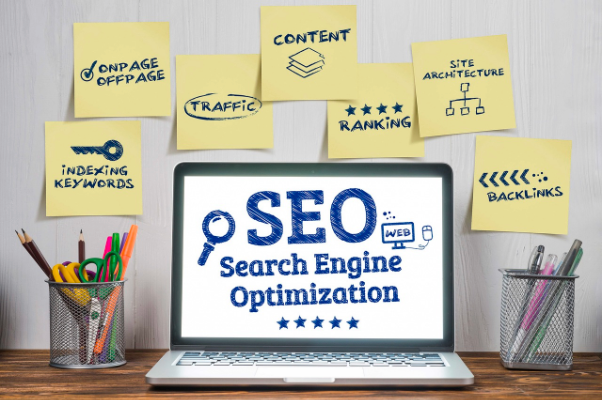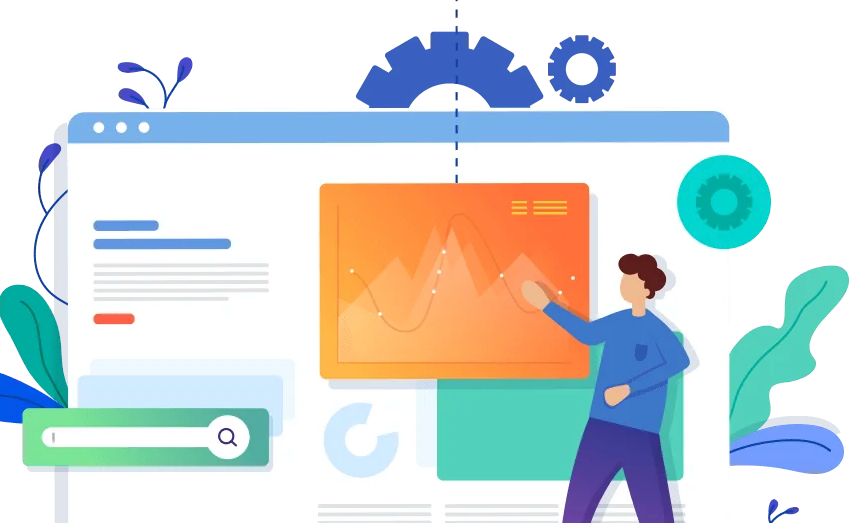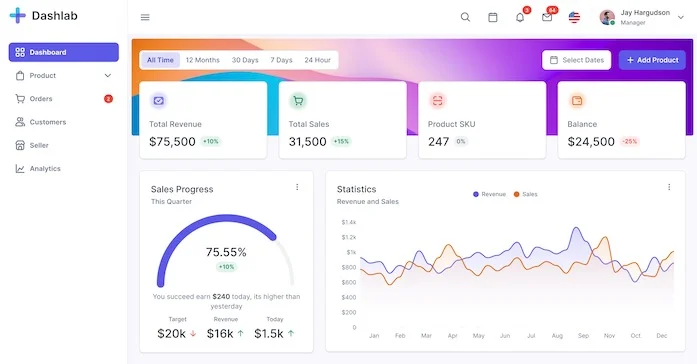Ever wonder how websites appear at the top of search results? That’s the power of SEO! Learn how to optimise your website for search engines and attract more organic traffic.
Key Takeaways
- SEO stands for Search Engine optimisation.
- It helps your website rank higher in search engine results for relevant keywords.
- Improved ranking leads to more organic traffic and brand awareness.
What is SEO?
SEO stands for Search Engine Optimisation and it essentially means that you try to rank for competitive keywords in search engines (usually Google). This is a common form of digital marketing that is used to generate traffic and business for a website. Essentially, the higher you rank on search engines like Google, the higher your traffic to your site will be. Users tend to click on results that appear first which will drive more sales and revenue to your business.
At KBA Web, we recommend that everyone who owns a business and is looking to grow should do SEO. We recommend that they hire a professional with lots of experience (like KBA Web). Or if they can’t afford to outsource and hire an SEO specialist then they should, at last, do it themselves.

Why is SEO important?
Lots of people use a PPC (Pay Per Click) model on Google, where they pay google to rank at the Top and pay them a certain amount when a user clicks on the link. The amount a user pays is determined by the industry and how competitive the keyword is. Whoever bids the highest will end up ranking on Google in google ads.
This is usually used as a short-term solution for most businesses, as it ends up costing them a lot of money especially if they’re also using a Google Ads Agency. Doing this can cause companies tens of millions of dollars per month to rank for some highly competitive keywords.
You can clearly see that there are huge numbers of people and companies paying large sums of money so that they can rank on Google using a PPC model. However, there is also a way to rank organically on Google without spending any money on ads (if you do it yourself). This is known as SEO or Search Engine optimisation, and is a long-term solution to drive traffic to your business.
The quality of traffic that goes to your website is usually much better as well. When you pay for a PPC Google Ads Campaign, there is the text of an ad right next to your website, which shows the user that you paid for the traffic meaning that they’re less inclined to actually click on the website. They’re also less likely to say on it for very long or convert into any real business.
How does SEO work?

So great, now that you know what SEO is and see the importance of it. You might be wondering well how do I actually rank higher in Google and other search engines?
Well, Google uses a complex algorithm to rank websites that takes into account hundreds of different factors. Google uses a crawler that indexes and crawls all the pages of a website. It gets the titles and content on the pages to understand the website and pages, and then crawls its backlinks. A backlink is where another website links to your website or a page in your website. Google will get all the backlinks and content that it finds on your website or page and ranks it based on these factors among at least 100 more.
Although backlinking and optimizing your content are seen as the most important things to do for SEO and make the biggest difference, Some other factors that may influence your rankings are whether or not you have an SSL certificate, your page speed, and Mobile friendliness, among other important factors. Although these things are more technical and would have to be done by a professional website designer or SEO expert.
Where I can learn to increase my SEO?
If you’re interested in learning more and want to increase your SEO,! Check out our blog, The ultimate guide to SEO to learn how to do SEO!






